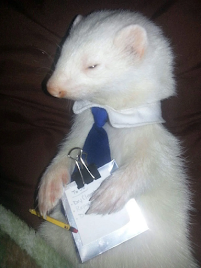A Networked Society: Where Is It Going?
Good rainy afternoon, my friends! So I misspoke last week - the two subjects of A Networked Society were similarly titled. We'll be talking about Copyright next week. This week, we're looking ahead into the future. We're going to look at where we're going digitally.
The future is full of a dualistic knowledge - that on the one hand, the UN Assembly declared the internet as a basic human right and that we're moving into a digital age in which every aspect of life could be conducted with a virtual component. On the other hand, there is still a significant portion of the world without access, who may still be in a pre-industrial era. Indeed, even those that do possess access may have very slow access (source) or censored access. (map) This interrupts the ability of the digital world to evolve, though unfortunately these deficiencies are not surprising.
We look forward into the future of science fiction when it comes to the digital world - working remotely except when necessary, technology helping us adapt and flourish in the four-day week or the half-day models, being more connected to others, and embracing new technologies we haven't concepted yet. (source) I would love to see the UN's non-binding resolution followed, a cooperative network of basic internet access that stretches across the globe. It's not going to happen - that's unfortunately how SkyNet happens or we end up with a hypercorp controlling everything. If we can't offer universal food, water, or shelter, we won't offer universal internet. But it would be a beautiful idea.
We should be focusing instead on balancing our lives. If you disappear entirely into your digital media, you end up with Wall-e where people have lost the ability to personally connect. However, it is not the issue the Digital Immigrants would have us believe - the younger generation are more connected than ever. We will always need face-to-face interactions to keep us sane, and achieving balance is going to be the biggest challenge for those societies that are ahead of the curve.
We have an opportunity - we can use the great interruption of COVID as a springboard into a new way to live our lives. (source) But I would like to extrapolate that into education as well. We knew that the old model of schooling wasn't working for a portion of our students, and we have the research that shows us we understand better how to have a holistic and thorough educational experience. This time in which we have been forced online could be a pathway to great scholastic change, tailoring the learning experience to each student and forging a generation of self-directed learners. I believe it's a true possibility.
I would love to be an optimist. I would love a transparent, cooperative government that made decisions based on equity and justice. I would love to endorse the trend of government access (source) and believe that we can make a better society. I can't. Current trends discourage me, and I fear that people who do not possess the knowledge or the desire to process the information will not use said information properly - to quote Men in Black, a person is smart. People are stupid and panicky.
The future can be bright. The future can be prosperous and wonderous. I fear it will not be, but I want to believe it can be.
This week, I give you a cute ferret in a business suit. He is looking for his TPS reports. Next week, we'll tackle Copyright.
I'll be in tow!



Comments
Post a Comment